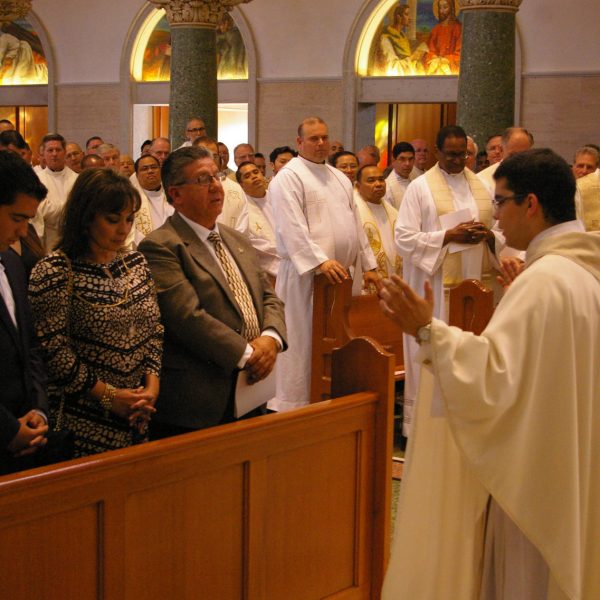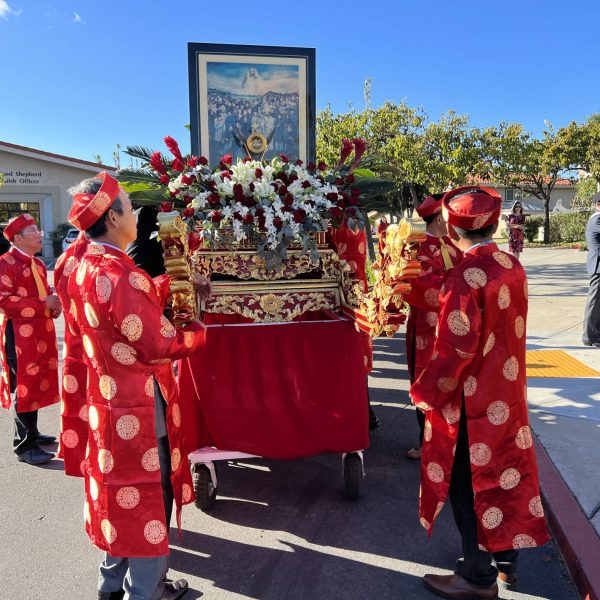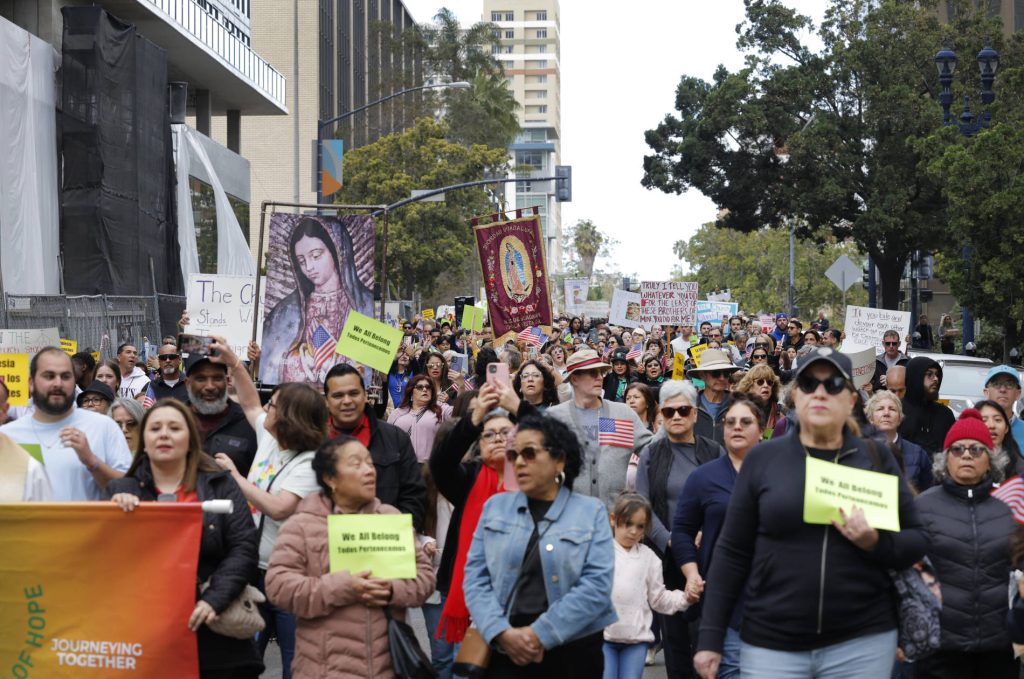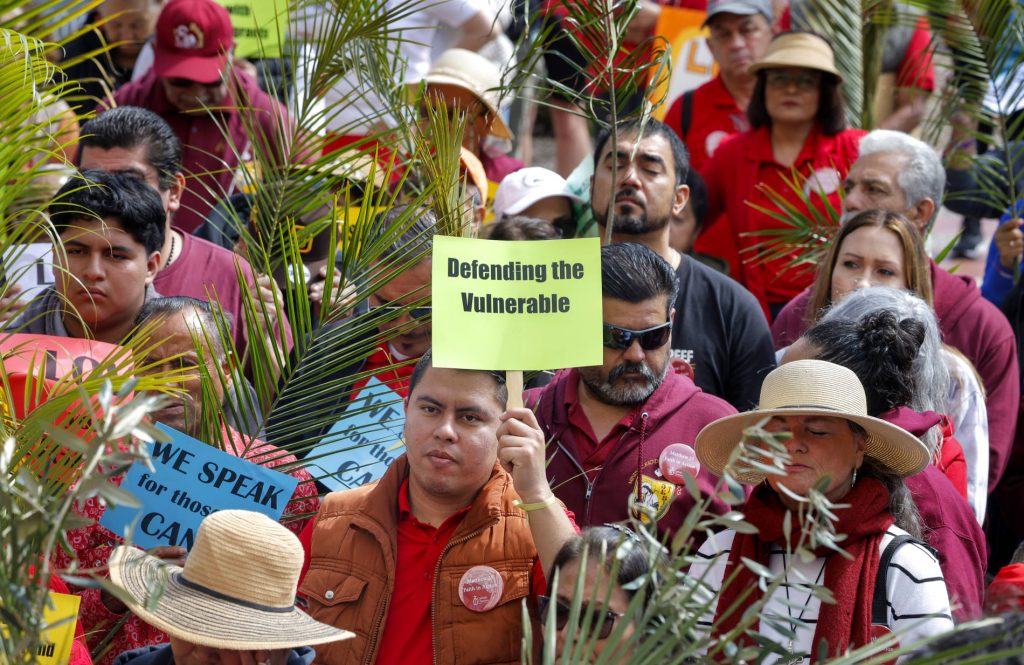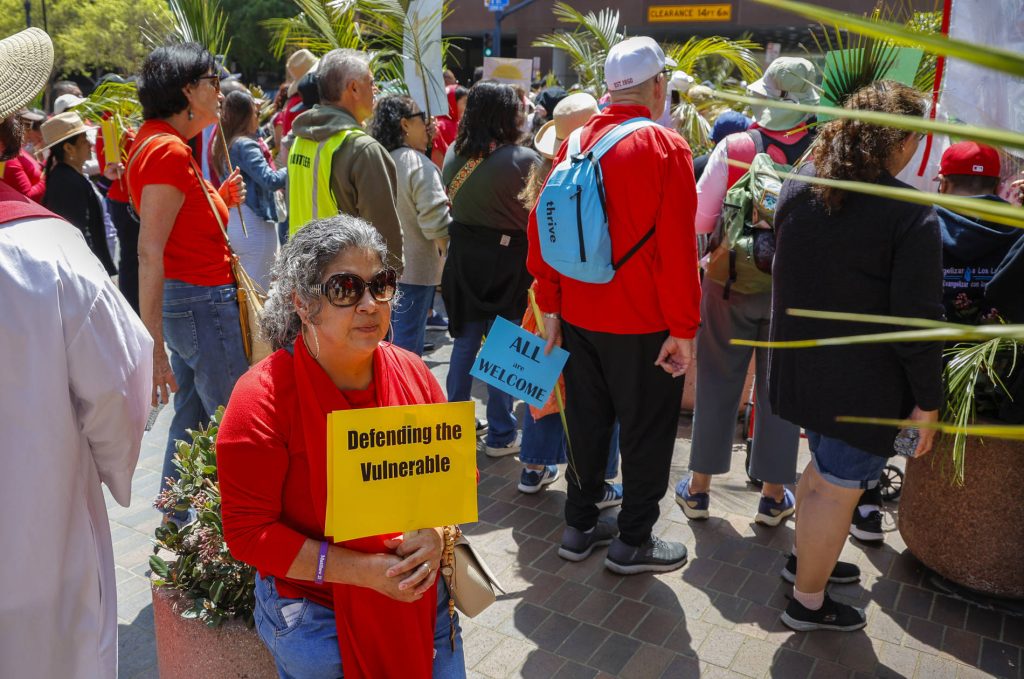By Norma De La Vega
SAN DIEGO — Behind each deportation there is a family trauma few know. Vulnerable families enduring hunger, some living homeless, too afraid to step forward and ask for help.
Catholic Charities, Diocese of San Diego, is working to help these families through several emergency services, following its Gospel mandate to support the poor and marginalized, regardless of legal status, nationality, or even faith.
It has established a Children’s Task Force to help these families prepare for a possible detention or deportation and to provide them with emergency support services after it has occurred.
These services are made possible by private donations and through close collaboration with pastors and parishes across the diocese.
They are in response to the massive deportation campaign being carried out by the U.S. government.
“We don’t know what is happening in our own community,” said Cassandra Castellanos, director of the organization’s Refugee and Immigrant Services, in a recent interview.
Alejandra Luna, one of the organization’s social workers, helps to coordinate support to families. She recalled the case of a mother in her twenties with four children, including a baby. Her husband had been detained by ICE, along with half the family, including the children’s grandmother. The mother desperately needed milk and diapers, which the organization provided.
In another case, a mother with two children, ages 18 months and five years, were living in a car. The organization put them up in a hotel temporarily and gave them food, giving them time to figure out a sustainable plan to live safely.
In February, the organization’s Refugee and Immigrant Services team, which includes a managing attorney, began to disseminate information through workshops, in coordination with parishes. They informed migrants about their rights and how they could respond to a possible raid by Immigration and Customs Enforcement (ICE) agents.
Castellanos said that during these sessions team members discovered that the parents’ greatest concern was leaving their children unprotected if they were deported. They feared their children would be lost in the system.
The team began to hear of concrete cases of immigrant families that had lost everything after the breadwinner was deported. They learned of women who could not afford to buy food for their children, and who had lost their homes. They heard about children traumatized at witnessing the at times violent detention of their mother or father.
In June, the team began Family Preparedness presentations, which includes parents establishing a guardianship through a Power of Attorney. If the parents were deported, the guardian could represent them in matters involving their children’s school, health care, or even a contact with law enforcement.
More recently, the team began offering emergency supportive services to families suddenly unable to meet their basic needs. This includes providing food, essential baby supplies (formula, diapers, etc.), temporary hotel accommodations, gasoline cards, temporary rental assistance, trolley and bus passes and urgent legal consultation services.
As of mid-October, the team had provided emergency support service to nine families, involving a total of 19 children, all under the age of 13, Castellanos said.
“This is a difficult time for families,” she added, noting that fear has led them to isolate themselves, making it difficult to reach them.
The free assistance to set up a guardianship saves families attorney and public notary fees, which can add up.
Castellanos explained that Catholic Charities met with representatives of organizations involved with children — such as schools, hospitals and law enforcement — to establish a Power of Attorney form they would accept, avoiding problems for the designated legal guardian.
“Each city, each state has different laws, different rules,” she said. “We wanted to ensure that, for example, if a sister had this legal form, she would not have any problem when they took the child to school or the hospital or contacted police.”
Another challenge was explaining to parents that they had to choose a guardian who was legally in the country, otherwise he or she also faced deportation.
Migrant families interested in receiving emergency services may contact their parish or Catholic Charities directly by phoning (619) 665-0645 or by email at ctf@ccdsd.org.
Emergency Assistance Available
Catholic Charities, Diocese of San Diego, provides emergency assistance to vulnerable families facing a potential deportation or are in crisis after one has occurred.
Families interested in receiving this assistance may contact their parish or the organization directly by phoning (619) 665-0645 or by email at ctf@ccdsd.org.
Catholic Charities is accepting donations to provide this assistance through its Matthew 25 Campaign. Visit ccdsd.org to make a donation.
The Diocese of San Diego offers bilingual online information and resources for undocumented immigrants and the community at sdcatholic.org/immigration (English) and sdcatholic.org/inmigrantes (Spanish).


